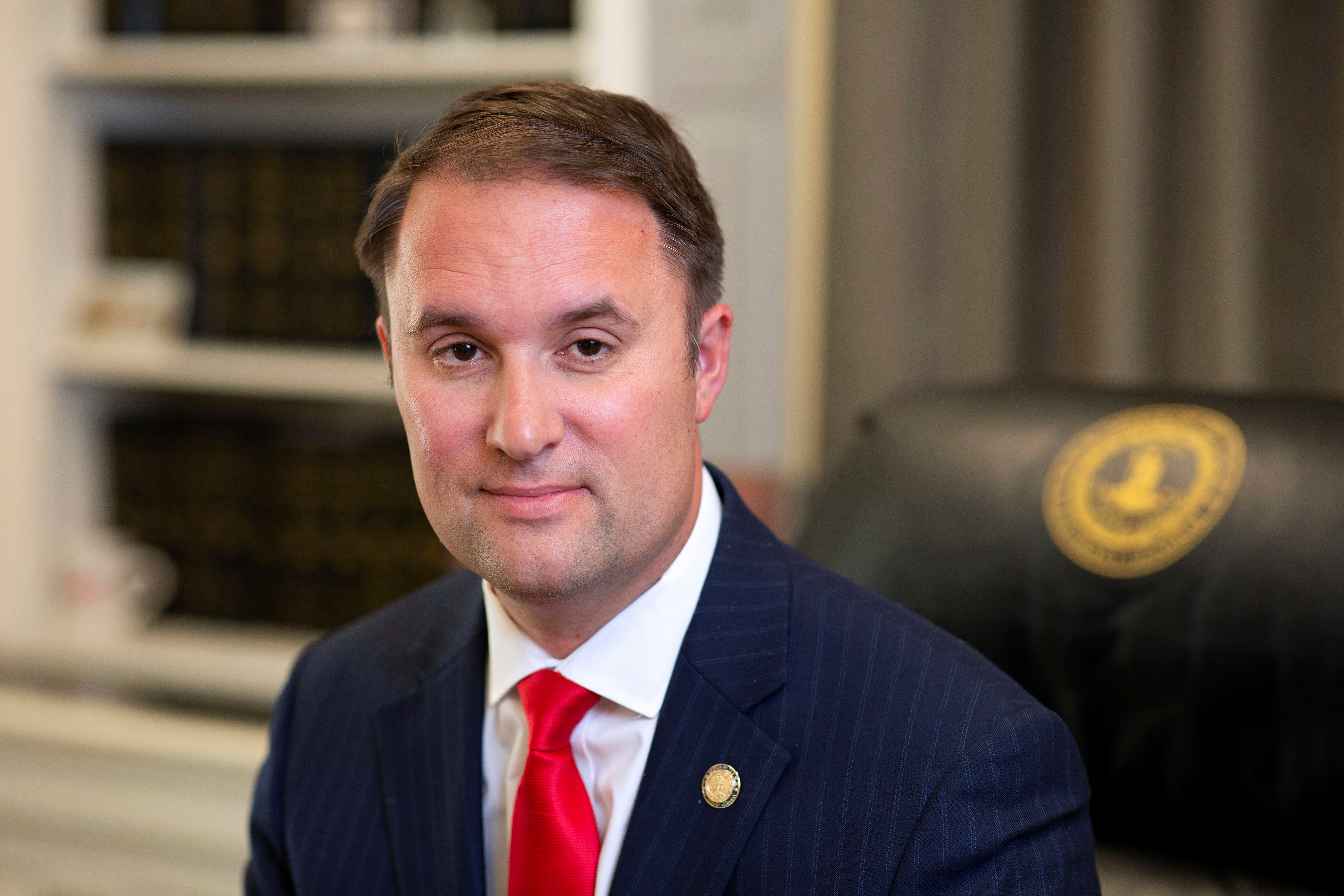Virginia school boards must adhere to Gov. Youngkin's new policies on transgender students, AG says
Virginia's attorney general says Republican Gov. Glenn Youngkin’s new model policies for the treatment of transgender students are in line with federal and state nondiscrimination laws and school boards must follow their guidance

Republican Virginia Gov. Glenn Youngkin's new model policies for the treatment of transgender students are in line with federal and state nondiscrimination laws and school boards must follow their guidance, the state's attorney general said in a nonbinding legal analysis released Thursday.
"The Model Policies ensure that all students are treated with dignity and that parental involvement remains at the center. These policies are fully compliant with the law, and school boards across the Commonwealth should support and implement them,” Attorney General Jason Miyares, also a Republican, said in a statement.
The advisory opinion from Miyares comes as a growing number of school boards across the state are responding to the administration's guidelines, which were finalized last month after a lengthy review and deal with issues ranging from athletics to pronoun use in the classroom. The guidelines, which under state law are supposed to offer something of a road map for local school districts to form their own similar policies, roll back many accommodations for transgender students urged by the previous Democratic administration. They have won praise from conservative and religious groups and sparked criticism from Democrats and LGBTQ advocates.
Some school boards in red-leaning areas of the state have begun to adopt policies consistent with the governor's. Others, mostly in blue areas, have said they plan to defy them.
For instance, Fairfax County Public Schools — the state's largest district — recently told parents it had no plans to change its guidelines for transgender students, which do not align with Youngkin's.
A similar dynamic, in political reverse, played out under previous Democratic Gov. Ralph Northam's administration. The Department of Education told local districts at the time that they assumed “all legal responsibility for noncompliance" and did not even track which divisions were meeting the standards, the Virginia Mercury reported at the time.
Youngkin has been making the case in recent public appearances that school boards have no choice but to fall in line. But he has declined to say exactly what tools his administration thinks it has to attempt to get noncompliant districts on board. The 2020 state law that led to the creation of the model policies is silent on enforcement.
Pressed Wednesday on the issue when speaking with reporters, he responded: “Just stand by.” He went on to add that he expects schools board to “fully to get to the right place.”
Miyares' 10-page opinion was issued later that day and released publicly Thursday morning. It addresses a handful of questions that have been raised about the legality of the guidelines and whether they are in alignment with the U.S. Constitution or state or federal law.
Miyares wrote that the athletics policies — which say participation should be based on biological sex rather than gender identity — are not in conflict with the Virginia Human Rights Act's prohibition against discrimination on the basis of gender identity.
The model policy “draws no distinctions of any kind on the basis of gender identity,” rather both sides of the classification, biological males and biological females, include trans students and treat them like other students of the same sex, the opinion says.
Regarding the section dealing with student identification in the classroom, including pronoun selections, it says: “Because the model policy ultimately vests the decision of pronoun reference with a student’s parents, (the policy) does not discriminate on the basis of sex."
The previous Northam era-guidance said schools should let students use names and gender pronouns that reflect their gender identity without “any substantiating evidence.”
The opinion also addresses the legal case of Gavin Grimm, the transgender former Virginia high school student whose lawsuit over his district's transgender bathroom ban led to a ruling that the policy was unconstitutional.
Miyares found that the policies are not in conflict with the 4th U.S Circuit Court of Appeals ruling, which “does not impose a blanket rule forbidding sex-separate facilities in all situations, let alone govern policies related to athletics, access to information, or pronoun usage.”
In conclusion, the analysis found that the model policies “offend neither the Equal Protection Clause, Title IX, nor the (Virginia Human Rights Act).”
“School boards therefore must adopt model policies consistent with those developed by the Department,” it said.
Opinions by the attorney general are only advisory and are not binding on the courts, Eden Heilman, the ACLU of Virginia's legal director, noted in a statement.
Heilman called Miyares' opinion ‘’every bit as cruel and misguided as the policies themselves."